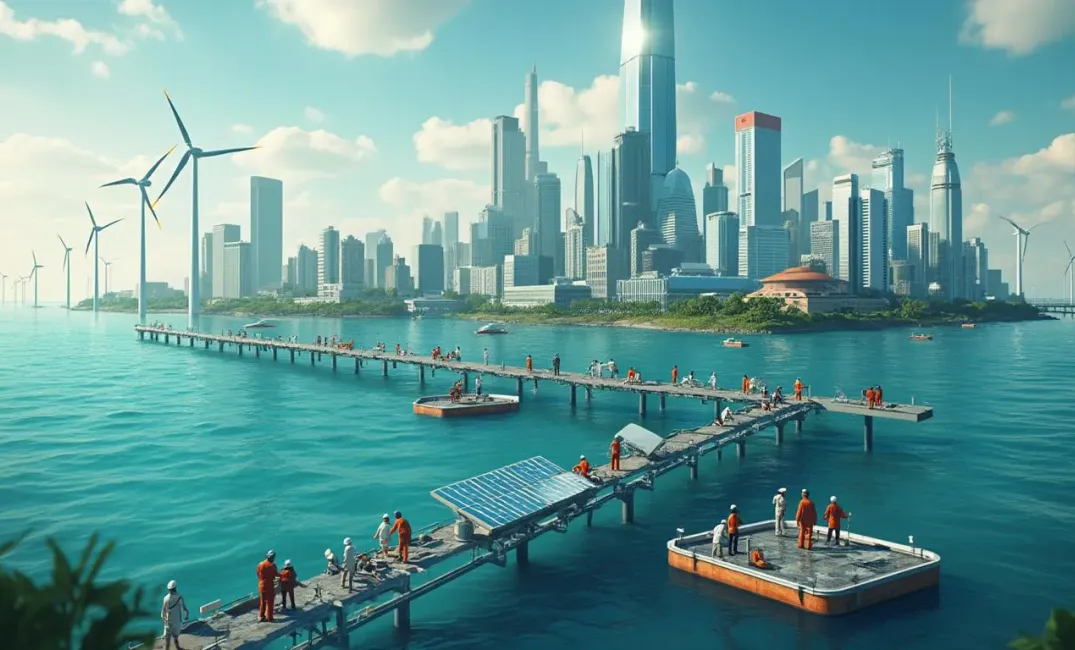Introduction: A Global Crisis Unfolding
"We are the first generation to feel the impact of climate change and the last generation that can do something about it." — Barack Obama
Climate change stands as one of the most pressing challenges humanity has ever encountered, transcending geopolitical boundaries and generations. It encapsulates the peril and promise associated with human activities and Earth’s natural rhythms, demanding immediate and concerted action. This exploration delves into the history, impact, and future of climate change, highlighting humanity's role and the collective journey towards sustainable solutions.
The Historical Context of Climate Change
The Natural Climate Cycles
- Ice Ages and Warm Periods: Earth's climate has undergone cyclical changes due to natural phenomena such as volcanic activity, variations in solar radiation, and shifts in Earth's orbit, leading to ice ages followed by warmer interglacial periods.
- Historical Documentation: Ancient texts and tree rings provide records of climate patterns affecting human civilizations, often correlating shifts in climate with historical events like famines or societal collapses.
The Industrial Revolution and Its Aftermath
- Carbon Emissions Begin: The advent of the Industrial Revolution in the late 18th century marked a significant turning point, as fossil fuel combustion became widespread, dramatically increasing atmospheric carbon dioxide levels.
- Accelerated Change: By the 20th century, evidence of accelerated climate change became apparent, with scientists correlating rising global temperatures, melting glaciers, and erratic weather patterns to human activities.
The Manifestations of Climate Change
Environmental and Ecological Impacts
- Rising Sea Levels: Melting polar ice and glacial retreat contribute to rising sea levels, threatening coastal cities and island nations, exacerbating erosion and increasing flood risks.
- Biodiversity Loss: Changing climate conditions disrupt ecosystems and force species to migrate, adapt, or face extinction, impacting biodiversity and threatening global food security.
Weather Extremes
- Intensified Storms: Increased ocean surface temperatures fuel more powerful hurricanes, typhoons, and cyclones, resulting in heightened destruction and economic losses.
- Heatwaves and Droughts: Extended periods of intense heat and drought challenge agricultural productivity, water availability, and human health, particularly in vulnerable regions.
The Socioeconomic and Health Repercussions
Impact on Human Populations
- Displacement and Migration: Climate-induced natural disasters and resource scarcity contribute to significant human displacement and migrations, presenting complex humanitarian challenges.
- Economic Disruption: The economic impact of climate change is profound, affecting agriculture, infrastructure, and health, exacerbating poverty and inequality in affected regions.
Public Health Challenges
- Vector-Borne Diseases: Changing climates expand the habitats of carriers of diseases such as malaria and dengue fever, posing heightened public health risks.
- Heat-Related Illnesses: Rising temperatures increase the prevalence of heat-related illnesses, challenging healthcare systems and disproportionately affecting the elderly and economically disadvantaged.
The Global Response to Climate Change
International Agreements and Initiatives
- The Paris Agreement: Adopted in 2015, this landmark accord unites countries in efforts to limit global warming below 2°C, striving for carbon neutrality and fostering climate resilience.
- Sustainable Development Goals (SDGs): The United Nations advocates for integrated global action through SDGs, aiming to address climate change while promoting economic growth and sustainable communities.
Technological and Innovative Solutions
- Renewable Energy Advancements: Innovations in solar, wind, and geothermal energy sources play crucial roles in reducing dependency on fossil fuels and mitigating greenhouse gas emissions.
- Carbon Capture and Geoengineering: Emerging technologies explore capturing carbon emissions and geoengineering efforts to reflect sunlight, offsetting climate change's effects.
A Call for Unified Action and Awareness
The Role of Education and Advocacy
- Raising Awareness: Education on climate science and its societal implications is key to fostering a global understanding and mobilizing collective action.
- Youth Activism and Movements: The youth-led climate movement underscores demands for accountability and immediate action, championing policies and initiatives that prioritize planet stewardship.
Strategies for Climate Resilience
- Adaptive Infrastructure: Designing resilient infrastructure capable of withstanding climate extremes is vital for safeguarding communities and economies.
- Community Engagement: Grassroots initiatives emphasize local solutions, empowering communities to adapt to and mitigate climate changes through sustainable practices.
Conclusion: Humanity's Pivotal Moment
"The Earth is what we all have in common." — Wendell Berry
As stewards of the planet, humanity stands at a critical juncture with the opportunity to redefine its relationship with nature. The climate crisis presents a clarion call for transformative action, collaboration, and innovation, transcending national borders and uniting diverse cultures in pursuit of a sustainable future.
The journey towards climate resilience and sustainability requires unprecedented cooperation, visionary leadership, and a fundamental reevaluation of values and priorities. By embracing sustainable practices and fostering a culture of conscientious environmental stewardship, humanity can address the challenges of climate change, ensuring a thriving Earth for generations yet to come.
The legacy of climate change is not solely defined by challenges but also by the aspirational narratives of resilience, adaptability, and unity in preserving our shared home. In answering this call to action, humanity attests to its potential for meaningful change, bridging ecological integrity with enduring hope and renewal.
CLIMATE RESILIENCE, YOUTH ACTIVISM, ENVIRONMENTAL IMPACT, INTERNATIONAL AGREEMENTS, SOCIOECONOMIC ISSUES, SUSTAINABILITY, RENEWABLE ENERGY, GLOBAL WARMING, PUBLIC HEALTH, CLIMATE CHANGE

